Turning Down Christianity Today
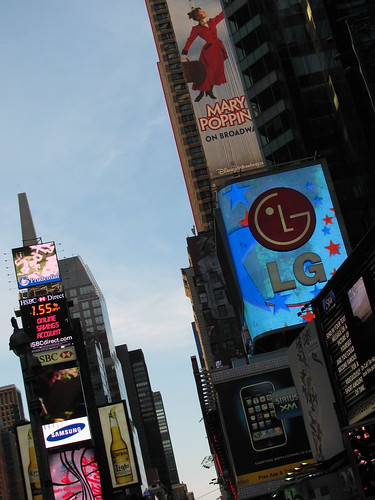
It is tempting to commercialize one's art, since the need for a paycheck and reputation-development are real.
But if the most beautiful, powerful things we produce are indeed a gift, as Lewis Hyde notes in The Gift, then we may need to occasionally turn down an opportunity to sell, if it means debasement of the work.
Which brings us to our story. Almost two years ago I got a very exciting email from an awesome editor at Christianity Today. "We want the article," it said. "Can you cut the piece to 1300 words?" I'm not a prima donna (much) about my writing, but I knew that to say yes to this request would mean killing the spirit of the article, excising its most beautiful parts.
Indeed, when the editor sent back a potential draft to show me how we could make it work, the beauty was gone. This was not about the editor's skill; it was about the size of the box. The beauty had to go.
Let me tell you, it was not easy to say, "I can't sell it." I needed that sale, or so it seemed. My book was about to come out. It was the first time CT had offered to buy from me. I couldn't see into the future and know there would be another CT opportunity (there was, just a few months later).
At present, the piece has made it through several approval rounds at another magazine. Who knows if they will buy it. Or the next magazine, or the next. It can take time to find a home for beauty. And if we never do, at least it is still beauty and has found a home in us.
Commercial Times Square photo by L.L. Barkat. Post is for Chapter 8 of Hyde's The Gift.
RELATED POSTS:
High Calling Blogs The Gift: Work as Art
Laura's Priceless
Labels: Christianity Today, Lewis Hyde, The Gift, writing life



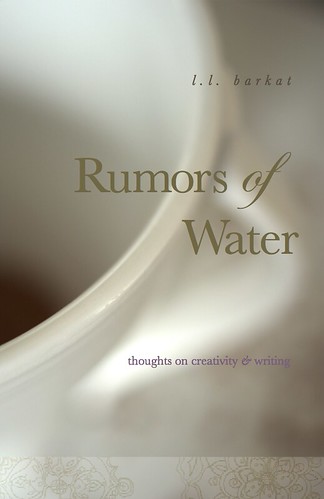
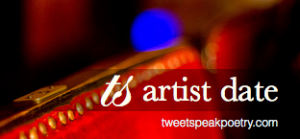

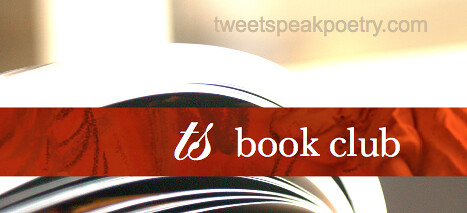
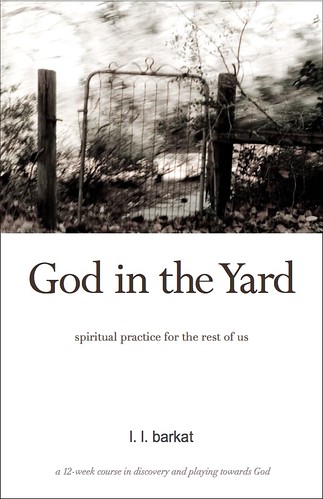







36 Comments:
Wow. It's such a tough call sometimes, though, isn't it?
Wordlily... funny thing about that... it wasn't a tough call in the sense that I knew deep down I would ruin the piece and end up selling something I couldn't ultimately be proud of. But it WAS tough to follow that sense, because I wanted the opportunity so badly.
But if the most beautiful, powerful things we produce are indeed a gift...
You challenge me. I am afraid to create for the sake of the gift. It must have a purpose, or I can't justify my investment. What beauty do I trade in every day because I feel I must sell it?
Good for you!
or that the gift is in this story, the example of these questions we ask ourselves , or wonder about others.
and thank you for the kindness left in my hall, it has been full of voice these past few days, and yours to me floating there warmly
I had a tiny article being printed in a diocesan Episcopal newsletter (not paid for it). I took a breath in when I received the email asking if editing was allowed. Upon reading the edited phrases - maybe 15 words - I was so relieved as I thought the article a bit stronger without those 15 words, BUT I did have that first resistant answer ready to declare, no, never mind. We do feel obsessive and I think rightly so when we've put ourselves "out there" to remain true to our convictions. Good for you!
Woot!
Way to go, L.L. I'd have been tempted to sell the gift, reducing its value. It's something I struggle with. I've been pondering a lot lately these gifts we're given, and how I use them to honor God .... and how I DON'T.
Everything in balance. Knowing what can go and what must be kept is an art in itself! Pleasing Him is the ultimate goal :-)
Laura He truly does reside in the very detail of your life. I am blessed to know you.
Good for you, L.L. It's hard to put a price tag on beauty, isn't it?
You all make me smile.
I share this story not to show how resolute I am about preserving my art, but to remind myself that I should never be just about selling (though of course I do sell some of my work).
Also, I wanted to give body to Hyde's thoughts about what it means to commodify versus share as a gift (he's so abstract, an example seemed in order :). In the end, I think one can sell a piece of work and still somehow have it retain its gift properties.
this is both good and brilliant. thank you for sharing a concrete example.
I remember well my virgin experience of being edited for publication. Words and phrases that I would never have chosen were sprinkled throughout the article. Sentences that I loved were deleted. I thought to myself, "What is more important to me, my words or communicating my ideas." I decided at that point not to make my words precious to me, but where content was altered by editing, I would challenge it. My personal essays have generally not been edited as much as my journalistic pieces. While that's a nice feeling, I appreciate the work of editors, particularly on journalistic pieces, they generally improve my work.
For me, magazine writing is not primarily about art, but about the clear communication of ideas. Likewise, Dan Baum, who wrote for the New Yorker, recently did a twitter expose' on his experience with that venerable institution. He said it refused to acknowledge his wife as his co-writer, that without the extensive fact-checking and editing that goes into New Yorker articles they'd be much weaker and that if a freelancer wants to get published, he or she had better not challenge the editor too much. Words to live by, I think.
Having said all this, each of us has a unique vocational calling, so I affirm your decision, LL. One has to be at peace with one's decisions.
cas... Many writers think their work is so great, they can't see the forest for the trees and listen to feedback. I'm thinking that's the danger you're highlighting.
There's another danger though, and that is writing in ways that compromise our art, just to make a sale.
Eventually, I went on to sell to CT... a piece that could both be *me* and meet their needs. I was willing to take the initial piece back and find a home for it... a risk, but one I felt confident in taking because I've been a writer for over 20 years.
Great points LL. I too was thinking that I can get lazy when I think my work is going to get hacked to pieces. Over time, I took to sending early drafts so I wouldn't be wasting my time carefully crafting sentences if the direction was going to change.
There have been two occasions when I was truly horrified by what was done. In the first, my angle was too provacative for the audience. It was rearranged and chopped to the point that it read terribly.
The other was an investigative piece on a controversial issue that I did not take a firm position on. The conclusion was completely rewritten so that I came down on one side of the issue. I was stunned, but I thought to myself, given where we are as a society on this issue, if I have to advance a position this is the one I would advance. It was also beautifully written. I swallowed it, and won a national award for the article. The downside was that a source who trusted me felt betrayed by a sentence in that conclusion. It took work to repair that damage.
Protecting sources is another hill I've died on. If I've told someone an article is going to be one thing and the editor decides he or she wants something else, I'll let the article go before I'll betray the source.
I am fascinated by this idea of what hills we will die on-- an interesting mix of personal vision, career-need, relationships and so forth comes into play.
It was fun to come back here and see that you'd gone on and done more thinking. I had done some too and was returning to comment.
I remembered what I loved from artist Betty Spackman's book A Profound Weakness. She notes that we need both humility and confidence in our work. Now, how to do that is a real challenge.
Here's another concrete example, from the process of writing my book. On the one hand I needed humility to accept feedback about things that should be cut. Though it hurt, I eventually cut them myself, including three full chapters.
On the other hand, initial feedback said I should consider getting rid of the opening chapter vignettes. Deep down, I knew these were the heart of the book. I felt very helpless in the face of this feedback, because I didn't know how to respond... for me, cutting them really wasn't an option. I needed to maintain confidence at this point and search for a fix.
What to do? I consulted a writer whose opinion I really trust. She said, "No, no, no, calm down. You don't need to cut them. Here's what you do... Right now, the vignettes are extremely poetic and the body of the chapters is very edgy and humorous. It's a matter of bringing one down and the other up to create a sense that they're not completely at odds." She was right. The vignettes and the body are still different, but not so radically different that they can't coexist.
I think we make mistakes along the way, but over time we can somehow find this path of humility and confidence. It's often just a matter of experience.
"It can take time to find a home for beauty." this is my favorite line and a beautiful reminder for me!!
(btw--i wandered over here from mind sieve and look forward to reading more of what you have to say.)
Thank you for these concrete examples :)...I so agree that Hyde is abstract when discussing! It is a little frustrating for me (perhaps you've figured me out, that I like me some black and white--but that's why I love it over here so much, you challenge me to use a different part of my brain).
The discussion between you and Cas...so educational. I'm just wide-eyed standing in this shadow!
But you make the point that I think I gleaned from Hyde's conclusion this week (I'm going to stick with Sam for now and then come alongside you to pick up those missed chapters), that is, it is up to the artist to preserve the integrity of the work.
Hopefully, that deep spiritual filling we get from sharing our gift will win out in the end.
L.L.,
Sad, and good! Good for you! Too bad for others.
A condensed version, kind of like a Reader's Digest version of the Bible. To see the real beauty you have to see the whole, everything. Of course that's God's holy word. So that no one really should delete this or that (not a comment on the actual Reader's Digest condensed verion of Scripture- which may have been okay for what they were doing, but not okay if it would simply end there for someone, I'm thinking).
The whole picture, we need to see, if we're to see the beauty of God's revelation to us in Jesus.
And they needed to let us see all you had written. But it's all about how they're trained, and the limitations in space given to them, I suppose.
I'm late to this one, but this is a great post and an important conversation for writers to have. Having been on both the "CT editor" and "CT writer" side of things, I appreciate your commitment to the integrity of your work; however, I also know that sometimes space, magazine style, and other issues make it necessary for editors to mess with your work in major ways.
I think it's important for the writer to know when she can let some of the art go in order to get the ideas or message out there, and when "letting the art go" would mean destroying the message. It's never an easy thing, but I think it's important to take each situation seriously and try to hear what the editor is really saying before making your decision.
I so appreciate cas's wisdom on this--as well as yours, Laura. :-)
Ed! So good to hear from you. Voice of experience and wisdom. I need to reiterate, perhaps, that I was working with a terrific editor who was very committed both to CT's needs and to me (very warm, very open).
Though my title for this post might sound a little cheeky, it's not meant to be. The editor wanted to make it work but also knew it might not... some articles simply need to maintain a certain word count or they are no longer the original thing.
The editor was also open to having me write a totally different piece on the same issue, but I didn't have any ideas.
Anyway, I think if I were to ask people to take away a high point here it would be to remember that much of our work is a conversation. Which implies a voice on both sides and needs on both sides and realities and ideals...and, and, and...
Laura,
Don't cha hate it when someone pops in with their two cents long after the post has been worked over every which way? ;-)
Hey, please don't feel like I was coming down on you for being "anti-editor" or something like that. That was not my intention at all. You are the last writer I'd think of as a prima donna. In fact, I think all editors should read your post to be reminded of the humanity of their writers and that they, as editors, have a responsibility not only to serve the reader (which, I admit, is their chief priority), but also to serve the writer by handling that with which they've been entrusted with the utmost humility and care.
It's definitely a privilege to be a steward of a great publication like CT, and to make decisions about what its readers will encounter each month in those esteemed pages. But I think being the caretaker of a writer's words--a living piece of that person's soul spilled out onto the page (or screen)--is an equal privilege.
So, please, no need to apologize or clarify. Your original words were clear enough--clear, gracious, and true.
Okay, so I reread my previous comment, and I must apologize if it sounds too artificially poetic. Whenever I read your posts, I get this lyrical rhythm in my head that seems to work its way into my comments. But the problem is, I'm not a poet. That's your gift! (I admire your prose, too.)
Okay, so my latest essay/blog post is up at CT's site and yup, it's been edited more than I would have liked, but I believe that is a space issue more than anything else. They want those blog posts short! Still, some of the lyricism is gone. Sigh. The life of a writer. Here's the link:
http://blog.christianitytoday.com/women/2009/08/running_in_the_shadow_of_911.html
If anyone would like to read the original for comparison into what actually happens to a submission, email me at exploring.intersections[at] yahoo.com and I'll send you the original.
Ed, you're a gentleman and a scholar!
Whoops. Try this link:
http://bit.ly/HiCRp
I should add that my editor is a copy editor, so whatever she does, I pay attention to, because that is not my strongest skill. I learn from the way she rearranges my sentences.
Ed... yes, that's what I feared. That somehow it sounded anti-editor. Which of course it wasn't meant to be. (Heck, I'm an editor too in certain contexts... and I kinda like myself most days. :) Thanks for all the high praise. [smiling] And I was amused about the poetic thing. Isn't it great when we get so into something it invites us to speak in its rhythm?
cas... thanks for sharing the undersides! That is very generous. Also, cool relationship with your copy editor. Like a dance, in its way.
On a different note, I've been thinking that writers need to "turn down" certain publications and opportunities sometimes before even trying. That's got to do with recognizing one's personal style and finding the places where it can best serve. I imagine there would be fewer rejection letters in the world if writers took the time up front to look for the "home" that fits. Or, simply to write-to-fit in places we'd like to be published.
LL, I think your last paragraph is key. I happened to find a good fit early. I've been turned down by other worthy publications because my voice isn't right for them. I've also been negligent in spreading my wings a little further because it's a comfortable fit and I'm not all that ambitious. This past year, I've begun to stretch myself a bit though, and have enjoyed it very much.
I was turned down by Christianity Today. I think I like your way better!
Oh, Kim... I've done both. :)
Once, a book acquisitions editor told me he didn't trust a writer who didn't have a long line of rejections to his/her name (well, of course, with a line of published pieces too). Which is to say... it means you were out there. A lot. Which always leads to a good percentage of "rejections." Still, if a piece has life, you may be able to find a home for it. And this leads me back to cas's comment...
cas... because I know my own blogs make the perfect home for my content, I sometimes hesitate to go through the trouble of branching outwards too. Here, I rarely face a rejection from The Editor. ;-)
Marcus Goodyear wrote something helpful at Godspace in a post about editing one's life:
"Editors have a reputation of being cold-hearted. We are the people who say no. We are the people who send rejection letters. I often tell writers, 'Take a look at where I’ve trimmed the piece.' For me, it is always trimming. Sometimes, the writers feel that I’ve chopped and hacked. But the result is the same. Sentence by sentence, paragraph by paragraph, I’ve looked for places to say no.
In my experience, neither editing nor spiritual disciplines are well understood in our culture. Most people confuse editing and proof reading. And many people reject discipline flat out. We are a society of excess, not discipline.
In his book On Writing, Stephen King has a simple formula for editing. The second draft should be 10% shorter than the first draft. Editing is about simplification."
That's a great story, LL. I have just read Marcus' post on editing. Two opposing views of the same subject. I would wonder what the opportunity cost is for saving the integrity of the "beauty" . Who's version of beauty? Not to say you made the wrong decision. I admire it. Greatly.
cas... yes, I liked that little piece. Of course the inside-out thinker in me paused... considered... is editing always the act of saying no? I think it may be the act of saying yes to what is deepest and true (Semantics? maybe, but worth exploring.)
And, too, is editing always trimming? Sometimes editing is adding what has been missing in a piece, conceptually, structurally. (I took a lot out of Stone Crossings, but I added things too... stories that hadn't yet been told, that I was hedging over, for fear of revealing myself.)
For reasons I can't put my finger on, I think it's important to flip these things, look at them from an alternate angle. Maybe compassion is at stake, or maybe art, perhaps humility or hope.
Which brings me to Bradley... opportunity comes in different forms. Sure, I lost that particular opportunity to be published by CT, but I may gain the opportunity for the same work to be published elsewhere in its shining form.
I may gain a sense that the work maintained its integrity, and I like to think that this was somehow oddly satisfying for the editor as well, who was drawn to the piece in its original form and only later faced the need to offer a radically different-sized "box".
For me, it's not just about getting a message out; indeed, how do we separate the message from the medium? The message I loved in that piece was tucked into the beauty.
Bradley (and others too, I guess :) ... I'm finding it is hard to discuss this in the abstract and I'm sorry to keep things ambiguous. It's just that the work is currently under consideration. Someday, I may be able to show you what I mean, should you even remember or care.
The best I can say is that there was a pleasing full-circle structure in the original and the foundational story was both beautiful and inspiring. For me, to excise this was to excise the real power of the article. Without it, I could only feel it was like a summary of something. That can have a certain beauty I suppose, but it lacks force.
Yes, editing is both addition and subtraction, humility and hope. It's also collaboration. I don't see the issues as being about integrity vs. selling out, or art vs. utility, but about priorities.
We need to know ours as well as those of the publishers we write for. I sent a query to Discipleship Journal once, for example, and they basically wanted a rough draft skeleton with Scripture references before they decided whether or not they were interested. I wasn't about to invest that level of work into something they might not want.
CT has trusted me enough to let me explore things that interest me. So, while the copyediting isn't always to my liking, the freedom of exploration and expression is.
I like to think the beauty is generally retained. It's been a rare case, IMHO, when it hasn't.
Post a Comment
<< Home